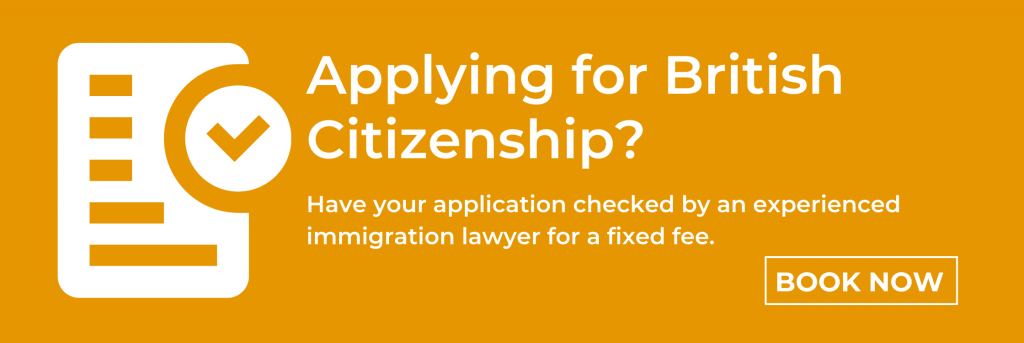European nationals who are or were present in the UK as either students or self-sufficient persons under the Immigration (EEA Regulations) 2006 (as amended in 2016) are required to have Comprehensive Sickness Insurance (CSI). The aforementioned Regulations have governed the presence of EU nationals and their family members in the UK.
The UK Government implemented Comprehensive Sickness Insurance as a requirement for EEA nationals present in the UK as students or self-sufficient persons from 20 June 2011 onwards. And when deciding on British Citizenship applications, the Home Office will look at the last 10 years leading up to the date of application and, if you were in the UK during that period, they will assess whether CSI was required. If you did not have CSI when this was required, this is considered to be a breach of UK immigration law. Those who have breached UK immigration law within the last 10 years are generally unable to meet the ‘good character requirement’ for Naturalisation and may have their applications refused.
Once Settled Status has been granted under the EU Settlement Scheme (EUSS), the lack of CSI will not affect an EEA national’s right to reside in the UK. However, it is with British naturalisation applications that the lack of CSI becomes an issue and potential reason for a refusal.
CSI for self-sufficient European Citizens present in the UK under the Regulations is also a requirement for their family and extended family members issued with a family permit or residence card. CSI became a requirement for family members of students from 6 April 2015.

What is CSI?
According to the relevant Home Office guidance, Comprehensive Sickness Insurance is one that must ‘cover the costs of the majority of the medical treatment’ which might be received in the UK. It defines CSI as follows:
This page defines comprehensive sickness insurance (CSI) and explains which European Economic Area (EEA) nationals and their family members must hold it. You can accept an EEA national or their family member as having CSI if they hold any form of insurance that will cover the costs of the majority of medical treatment they may receive in the UK.
You must take a proportionate approach when you consider if an insurance policy is comprehensive. For example, a policy may contain certain exemptions but if the policy covers the applicant for medical treatment in the majority of circumstances you can accept it.
The definition of CSI does not include:
- cash back health schemes, such as:
- dental
- optical
- prescription charges
- travel insurance policies
- access to the UK’s NHS
Do I need CSI for British Citizenship?
If you are a European national and have studied in the UK or at any time were a self-sufficient person, according to regulation 4 of the Immigration (EEA Regulations) 2006 (as amended in 2016), you were required to have CSI cover.
European nationals who are or have been present in the UK who are or were workers, self-employed persons or jobseekers under the said Regulations, and their family and extended family members were not required to have CSI cover. However, the minimum income or the number of hours worked may affect the requirements to determine whether an EU national would be regarded as a ‘qualified person’ under the Regulations.
European nationals who are or have been present in the UK and have acquired Permanent Residence status, and their family and extended family members are also not required to hold CSI.
The CSI requirement in respect of EEA applications is not new. Prior to the introduction of the EUSS, most EEA nationals applying for naturalisation would have had to apply for a permanent residence card, and if they were relying on being self-sufficient or a student for part of their qualifying period, would have to have confronted the CSI issue. Holding a permanent residence document was a necessary first step before applying to naturalise for most EEA nationals.
If you have long gaps in employment, have never worked, or have studied in the UK within the last 10 years, then you will need to consider whether you need to show CSI before applying for citizenship.
How can I prove that I had CSI?
There are three ways to show that the CSI requirement has been met.
If you had private health insurance that covered a majority of medical treatment in the UK, this would suffice. This would have to have been purchased separately from a private insurance company.
Alternatively, if you had a European Health Insurance Card also known as EHIC issued by your country of nationality and covers the relevant period, this may meet the requirement. An EHIC issued by the UK is not sufficient.
If you are (or were) entitled to healthcare in your country of nationality and they would have reimbursed the UK if you had fallen ill, this would also meet the requirement. It is sometimes possible to get a letter from your national Government confirming cover.
Do I need still need CSI for Naturalisation if I have been granted pre-settled or settled status?
Even if you have pre-settled or settled status, you will still need to prove that you held CSI for the periods before the grant of pre-settled or settled status for students or self-sufficient persons.
I was not told to get Comprehensive Sickness Insurance
The Home Office has been criticized that there has been a lack of clear information on the government websites relating to exactly when an EU national is required to obtain CSI. Many Europan nationals who have studied in the UK were not aware of this requirement and were not told about it either. Most Europeans only came to know about the CSI requirement when they applied for permanent residence.
Under the Regulations, CSI may have been needed even when the student’s income or working hours were reduced to below a level that would qualify them as qualified persons in the ‘worker’ or ‘self-employed’ categories.
Does a European Health Insurance Card (EHIC) meet the CSI requirement?
An EHIC card may be acceptable, but only if issued by an EU member state other than the UK.
Can I apply for Naturalisation without CSI?
If an EEA national did not have CSI when required under the Regulations for their lawful presence in the UK, then that period would not be considered ‘lawful residence’ and that period would not be able to be used for the residence requirements when seeking to naturalise as a British Citizen. Therefore, such an application may stand for a refusal due to a failure in meeting the good character criteria.
It is worth checking whether you had automatically acquired permanent residence here. For example, Sofia, a Spanish national came to the UK in 2010. She stopped working in 2016 and has been taking care of her two children ever since. Her husband is a British citizen; his earnings are sufficient to provide for the entire family. Sofia acquired permanent residence automatically, it does not matter that she has never had a document certifying permanent residence. She acquired the right to permanent residence under the Regulations in 2015, so she does not require CSI, despite her self sufficiency.
How we can help?
If you are an EU national and are looking to apply for British Citizenship, we can assist you with your application, contact our experienced professionals today.
Frequently asked questions
A Qualified Person is defined in regulation 6 under the Immigration (EEA) Regulations 2016 (as amended) as an EEA national that is living in the UK as a:
• job seeker
• worker
• self-employed person
• self-sufficient person
• student
Regulation 4(1)(c)(ii) and (d)(ii) of the Immigration (European Economic Area) Regulations 2016 (as amended) states that nationals living in the UK as self-sufficient people or students must have CSI. Regulation 4(2) of the regulations states that CSI must also cover the family members of self-sufficient persons. From 6 April 2015 (implemented in practice from 22 June 2015), this also applies to the family members of students.
If the following persons do not provide evidence of CSI the application may be refused:
• a self-sufficient person or any of their family members;
• a student or any of their family members;
• family members dependent on a child under regulation 16(2);
• family members of British citizens where the British citizen is economically inactive.






